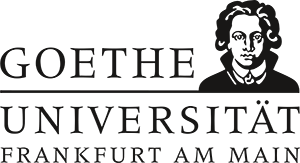Project description
The AIWG research group ‘In conversation with Prophet Muhammad? The hadith between life relevance and discordance in history, theology and pedagogy’ addresses the transmitted testimonies of prophetic proclamation (hadith). It inquiries about their significance for Muslims as a medium for a dialogical encounter with the Prophet Muhammad. Despite the dominance of the authenticity question and the associated ‘crisis of confidence in canonical culture’ (J. Brown 2014) in the contemporary Muslim discourse, hadiths still play a significant role in religious praxis. However, the Muslim reception of hadiths is hermeneutically conditioned by various perceptions of the prophetic figure. In this sense, engaging with hadith means dialogically relating oneself to the Prophet. This relationship can be experienced as existentially meaningful and transformative for the recipient of the hadith. The project, therefore, seeks to understand this experiential dimension of hadith, which has remained neglected in academic research till now, and to engage with it in a theo-pedagogical reflection. To this end, the relationship between the dialogical function of hadith and the articulation of prophetological images in history, hermeneutics and didactics are explored. Consequently, the research group will address the following key questions:
- To what extent do hadiths represent a medium for a dialogical encounter with Prophet Muhammad in religious life, and history, be that under present societal conditions, as well as in teaching and learning processes in ways that provide orientation and meaning?
- What hermeneutical and pedagogic-didactical possibilities exist for Islamic theology and religious education to deal critically and constructively with the potential discrepancies between the identity-forming prospects of hadiths and the demands of changing lifeworlds?
Employing an interdisciplinary approach, the research project is divided into four subprojects spread across teams at three universities:
In Tübingen, under the direction of Prof Ruggero Vimercati Sanseverino, the project investigates how the ‘resonance quality’ (cf. H. Rosa 2016) of hadith is related to the implied image of the Prophet Muhammad. In this way, it elucidates the hermeneutical conditions under which hadith discloses prophetically mediated meaning and orientation or results in a discrepancy with contemporary lifeworlds that impede such disclosure. This includes 1) an analysis of the articulation of identity and alterity discourses based on images of the Prophet in modern Sira literature and 2) a critical discussion of the mushkil al-ḥadīth category and the exploration of a contemporary theological approach to the so-called ‘problematic’ or ‘controversial’ hadiths.
In Berlin, under the supervision of Prof Mohammad Gharaibeh, the research group will investigate 3) how the experiential and identity-creating functions of hadiths relate to the historical development of the literary form of hadith collections and the articulation of images of the Prophet. In addition, it will explore the role contextual hadith exegesis (asbāb al-wurūd) has played in this regard.
Under the supervision of Prof Yaşar Sarıkaya in Giessen, the research group will 4) investigate the role and function of the dialogical and experiential dimensions of hadith in teaching and learning processes in schools and communities.
The project aims to understand which images of the Prophet are theologically significant for the reception of hadiths in divergent contexts, not least through interpretative and critical references to these images or their articulation in the hadith. On this basis, it investigates how hadith lends itself to engaging the reader in a meaningful and identity-forming conversation with the Prophet. Additionally, it investigates cases when such a conversation is impeded or even impossible. Therefore, the purpose of this project is to understand the conditions under which the life relevance of hadiths can be made accessible and transferable in theology and pedagogy.
The project plans to use a variety of formats to develop expertise in cooperation with stakeholders from the education sector, the community and the field of social work, and then to make it available to the public through knowledge transfer activities.
Outcomes
Conferences and workshops
The initial results of the research group will be presented at the following workshops and conferences.
- Workshop for school teachers: Hadiths and images of the prophet – the importance of their selection on the perception of the Prophet and previously underutilized
- Workshop for teachers in communities: Hadiths in community teaching practice – potential and challenges.
- Workshop for stakeholders (civil society, pastoral care and social work). The aim of this workshop is to sensitize participants, prison chaplains and institutions involved in radicalization prevention to hermeneutical and didactical approaches to hadiths, especially those interpretations harboring a potential for violence.
- Digital workshop: the hadith and its significance for Muslim life both past and present.
- Final international conference in which the results of the research will be presented and discussed with international scholars.
- Exhibition ‘Introduce me to your Prophet’
- The main findings of the research group will be published in an edited volume. Moreover, individual contributions by the researchers of the project team will be submitted to renowned national and international journals. Parallel to these scholarly activities, educational materials and informational resources will be developed for teachers in schools and in communities as well as for other actors and stakeholders working in the field of education.
Project leaders
Prof Dr Ruggero Vimercati Sanseverino, Center for Islamic Theology, Eberhard Karls University of Tübingen, Chair of Hadith Studies and Prophetic Tradition at the Center for Islamic Theology (project spokersperson)
Prof Dr Yașar Sarıkaya, Islamic Theology and its Didactics, Justus Liebig University Giessen
Prof Dr Mohammad Gharaibeh, Berlin Institute for Islamic Theology, Humboldt University of Berlin, Professor for Islamic Intellectual History
Staff members
Dr Hossam Ouf, Center for Islamic Theology, Eberhard Karls University of Tübingen
Dr Besnik Sinani, Center for Islamic Theology, Eberhard Karls University of Tübingen
Dr Patrick Brooks, Islamic Theology and its Didactics, Justus Liebig University Giessen
Mustafa Cetinkay, Berlin Institute for Islamic Theology, Humboldt University of Berlin
Dr Madlen Krüger, Academy for Islam in Research and Society
